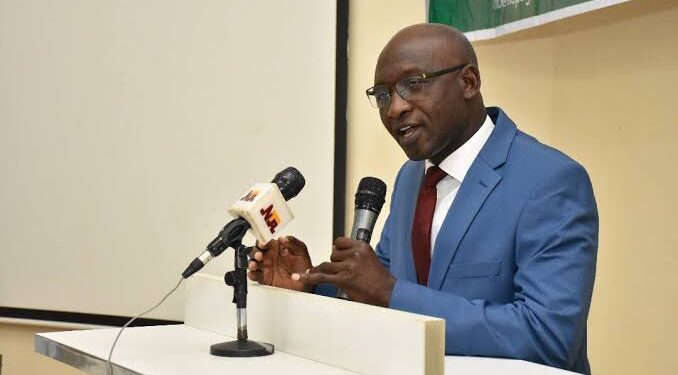In a concerted effort to stimulate job creation and accelerate economic development, experts are advising Nigeria to place a strategic focus on services exports and the promotion of business services outsourcing. Recognizing the immense potential of this sector, the Nigerian federal government has set an ambitious target of earning $5 billion from exporting jobs in the outsourcing industry by 2024, as disclosed by Dr. Ezra Yakusak, the Executive Director of the Nigerian Export Promotion Council (NEPC).
At the recently held National Conference on International Trade-in-Service organized by the NEPC in Abuja, Dr. Yakusak highlighted the profound impact that outsourcing can have on the Nigerian economy. Under the umbrella of outsourcing, a diverse range of services can be offered, including financial, advertising, courier, customer support, and logistics. Dr. Yakusak underscored that Nigeria is progressively shifting its focus towards exporting services, recognizing the long-standing potential that has been overlooked.
Drawing attention to Nigeria’s inherent strengths, Dr. Yakusak mentioned the country’s large population, cost-effective labor force, and proficiency in the English language, making it an attractive destination for companies and businesses worldwide.
“The potential of Nigeria’s services sector is immense, and with the right measures in place, it can generate even greater revenue than the $4.8 billion currently earned from product exports,” remarked Dr. Yakusak.
The Nigerian government’s unwavering commitment to harnessing this lucrative economic avenue is evident in its determination to achieve the $5 billion services export target by 2024.
To actualize this goal, experts emphasize the importance of adopting a more export-focused approach and creating an environment conducive to attracting foreign investments. However, Joachim MacEbong, a senior analyst at SBM Intelligence, highlighted that Nigeria still faces challenges in attracting foreign capital, which is crucial for creating employment opportunities, particularly for the nation’s youth grappling with high levels of unemployment.
MacEbong stressed the significance of becoming more welcoming to foreign investors, as this will enable Nigeria to leverage the opportunities presented by the Africa Continental Free Trade Agreement (AfCFTA).
Moreover, he underscored the importance of language diversity, suggesting that cultivating a larger number of French speakers in Nigeria can help bridge language barriers and further promote service exports.
With a renewed focus on services exports and business services outsourcing, Nigeria aims not only to bolster its economic growth but also to provide much-needed job opportunities for its burgeoning youth population.
As the nation adopts an export-oriented strategy, the hope is that it will attract foreign investments and implement language-friendly policies, ultimately propelling Nigeria toward its economic development goals in the years to come.
As the country embraces these opportunities, experts believe that Nigeria’s services sector has the potential to become a significant player in the global market, driving economic prosperity and positively impacting the lives of its citizens.









